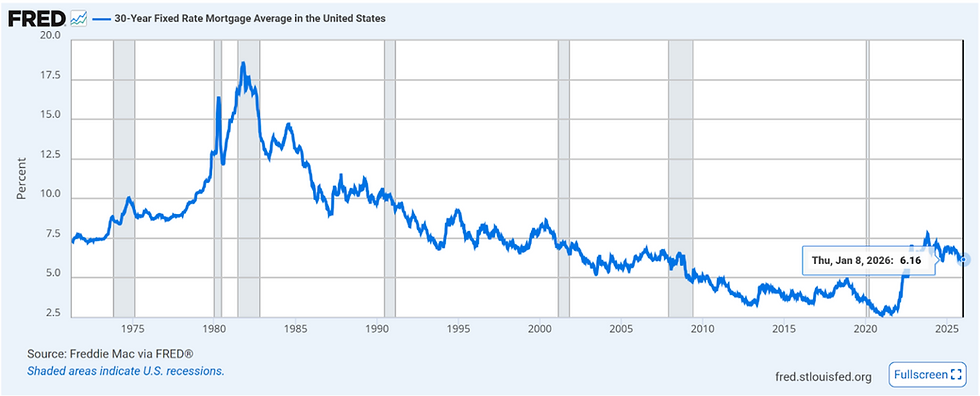Your Best Move: Why Working with a Process-Driven Team Guarantees a Smoother Real Estate Experience
- Jen Berbas

- Nov 26, 2023
- 4 min read
Updated: Oct 2, 2025

At first glance, the world of real estate might seem far removed from that of medical surgery or aviation, fields where a single oversight can be catastrophic. But if you've ever experienced or heard of a real estate deal gone awry, you recognize that the stakes in both domains can be quite high. One common tool across these fields, endorsed heavily by Atul Gawande in his book, The Checklist Manifesto (a favorite of mine), is the humble checklist.
At the Berbas Group, we find that using processes and checklists to improve our clients' experience allows the team more time for the softer side of real estate. More time to delight both our buyers and our sellers with exceptional experiences and fun surprises.
Here's why having a structured process guided by a checklist is indispensable for a real estate team -- and why we've structured ourselves that way!
Complexity Demands Process
Just as medical operations involve numerous steps and considerations, a real estate transaction is also a multifaceted process. From the initial client meeting, to understanding needs and scouting properties, to closing the deal, each step has its intricacies. A real estate team having an intricate checklist ensures that no item, however minute, is overlooked.
Minimizing Human Error
Gawande points out that, in the face of increasing complexity, even experts are prone to mistakes. Whether it's a surgeon or a real estate agent, human error is inevitable. However, a checklist can act as a safety net, catching oversights before they evolve into larger issues.
Streamlining Communication
One of the revelations from The Checklist Manifesto was how checklists fostered better communication among surgery teams. Similarly, real estate transactions often involve multiple stakeholders: buyers, sellers, agents, inspectors, and legal professionals. A systematic process ensures that all parties are aligned, minimizing misunderstandings and ensuring smoother collaborations.
The Importance of Process When Purchasing
The advantage of partnering with a seasoned real estate team that has aided countless buyers across various home types and locations cannot be understated. Such teams possess a wealth of knowledge from their extensive experiences, including common pitfalls associated with different properties, regrets expressed by past buyers, and crucial aspects buyers might overlook. Experience truly plays a pivotal role in the world of real estate. For instance, when considering a property, how should you research nearby schools, or evaluate the condition of the sewer lines or the stucco exterior? An established process guided by a proficient team ensures you are well-equipped to make these decisions, armed with all the necessary information.
The Significance of Process When Selling
At a casual glance, one might mistakenly think selling a property is as straightforward as listing it on MLS and placing a sign in the yard. This oversimplification couldn't be further from the truth.
With legalities to sift through, the property's aesthetic presentation, and the crucial phase of preparing all the marketing materials for the online presentation of the property, the act of selling goes beyond mere MLS data entry. By adopting a systematic process, sellers can anticipate potential pitfalls and act proactively. For instance, in Texas, ensuring all paperwork is in order before listing on the market can help get a seller a more secure contract protecting against potential contractual "outs" that buyers might exploit.
Additionally, when preparing the property, an exhaustive checklist ensures that every aspect is accounted for. It's not just about decluttering or general cleaning; it’s the finer details that can make all the difference. Checking for issues like burnt-out light bulbs, rusty air register returns in bathrooms, or outdated, yellowed smoke detectors can significantly enhance the property's appeal. Such attention to detail, backed by a tried-and-tested process, ensures sellers aren’t leaving things to chance. Instead, they’re leveraging a proven strategy to ensure their property is showcased in the best light, maximizing its value and the likelihood of a swift, favorable sale.
Enhancing Client Trust
For many, buying or selling a home is one of the most significant financial decisions of their lives. Clients need to trust that their agents have a structured approach. By showcasing a detailed process backed by a checklist, a team can give clients peace of mind, knowing that all aspects of the transaction are being meticulously managed.
Efficiency and Time Management
In the fast-paced world of real estate, where multiple listings and clients are juggled simultaneously, efficiency is paramount. A checklist, while seemingly rudimentary, provides agents with a clear roadmap, allowing them to manage their time better and serve clients more effectively. Our goal is that our clients always feel as though they are our only clients at the time. Being organized makes us efficient which allows us to spend more time with each client.
Continuous Improvement
A checklist isn't set in stone. As teams use it, they can identify areas for improvement, refining their process over time. Gawande emphasizes that checklists should be living documents, evolving based on feedback and changing needs. A real estate team can continually hone its process, ensuring that it stays at the forefront of client service.
Standardization Without Stifling Innovation
There's a misconception that processes and checklists stifle creativity. On the contrary, by having a structured approach, real estate teams can ensure that the foundational aspects of a transaction are handled consistently, freeing up mental bandwidth for innovative solutions to unique client challenges.
In The Checklist Manifesto, Atul Gawande champions the idea that in the face of increasing complexity, a simple tool like a checklist can have profound implications. For real estate teams, embracing a structured process is more than just a best practice—it's a commitment to excellence, ensuring that every client, whether buying or selling, receives unparalleled service. In the world of real estate, where stakes are high, and margins for error are slim, the power of process is undeniable.
Cheers! Jen





Comments